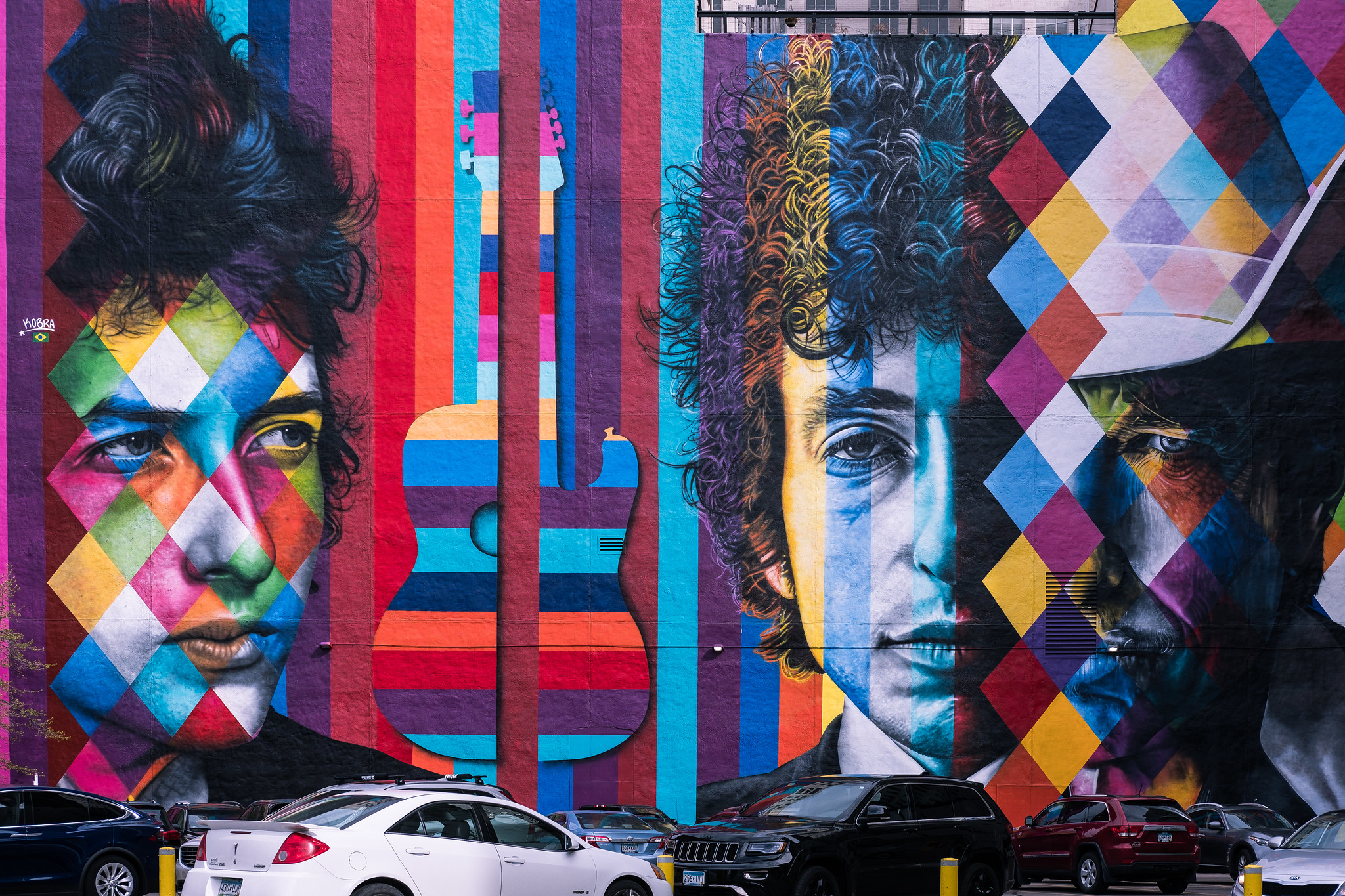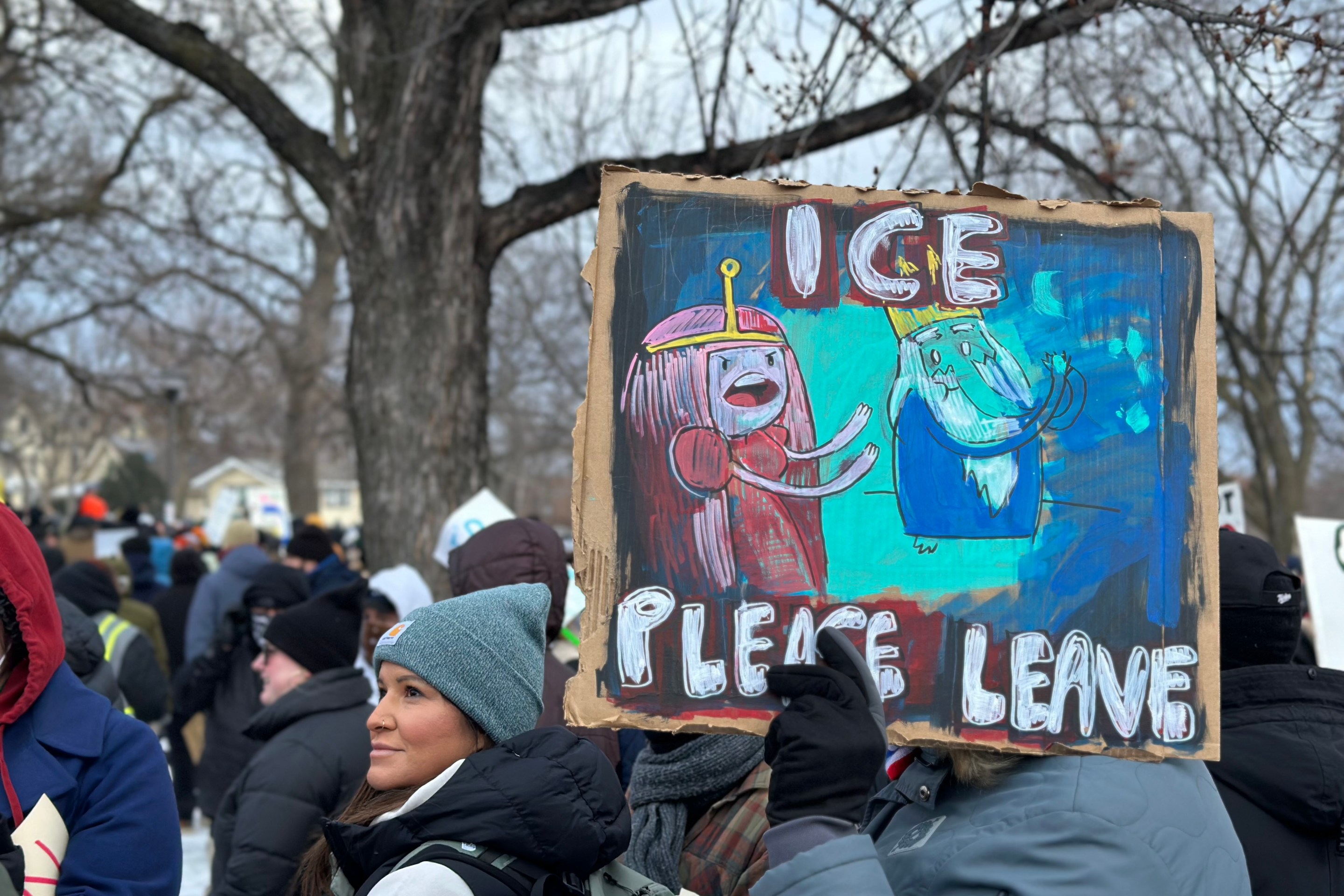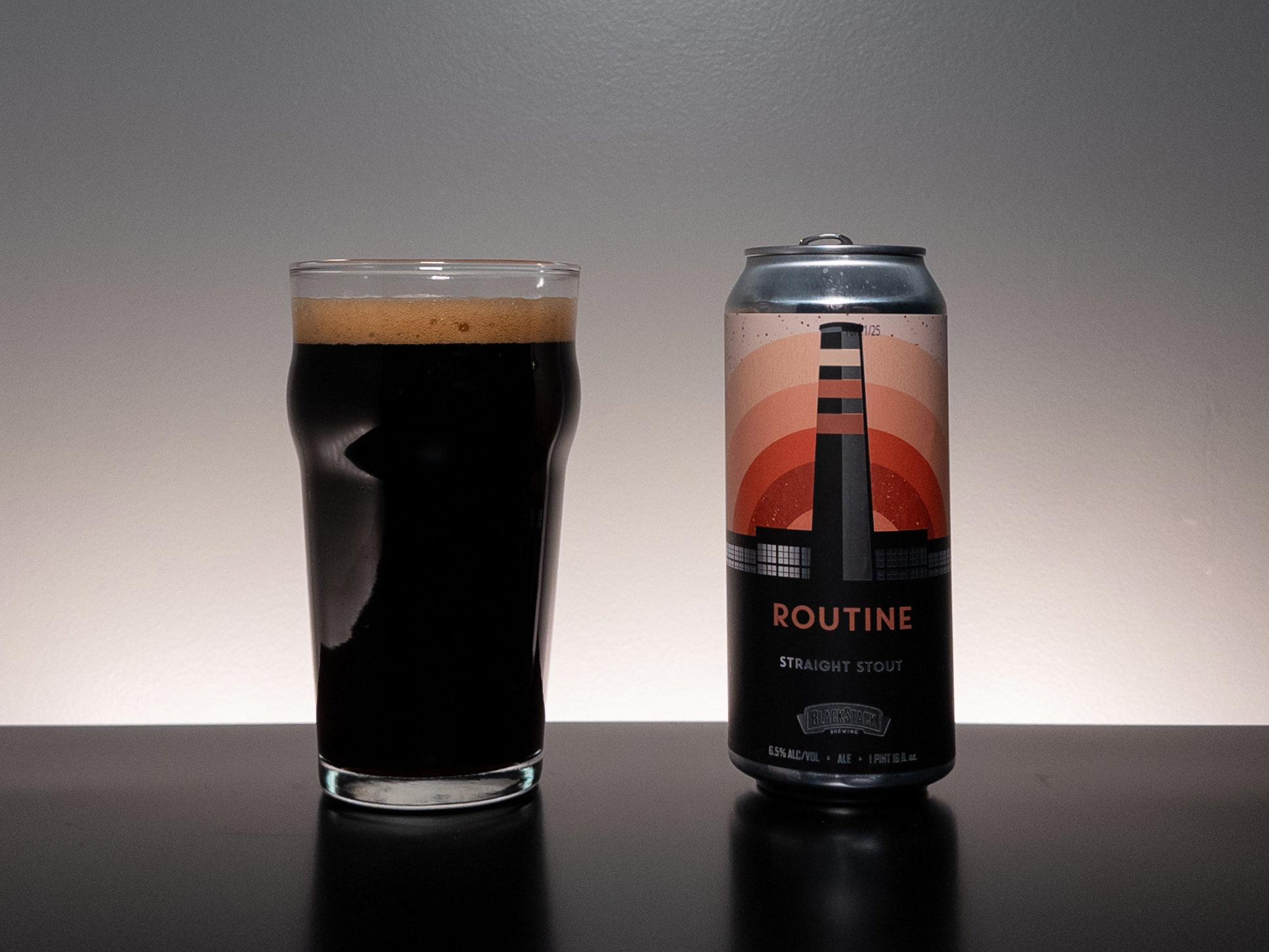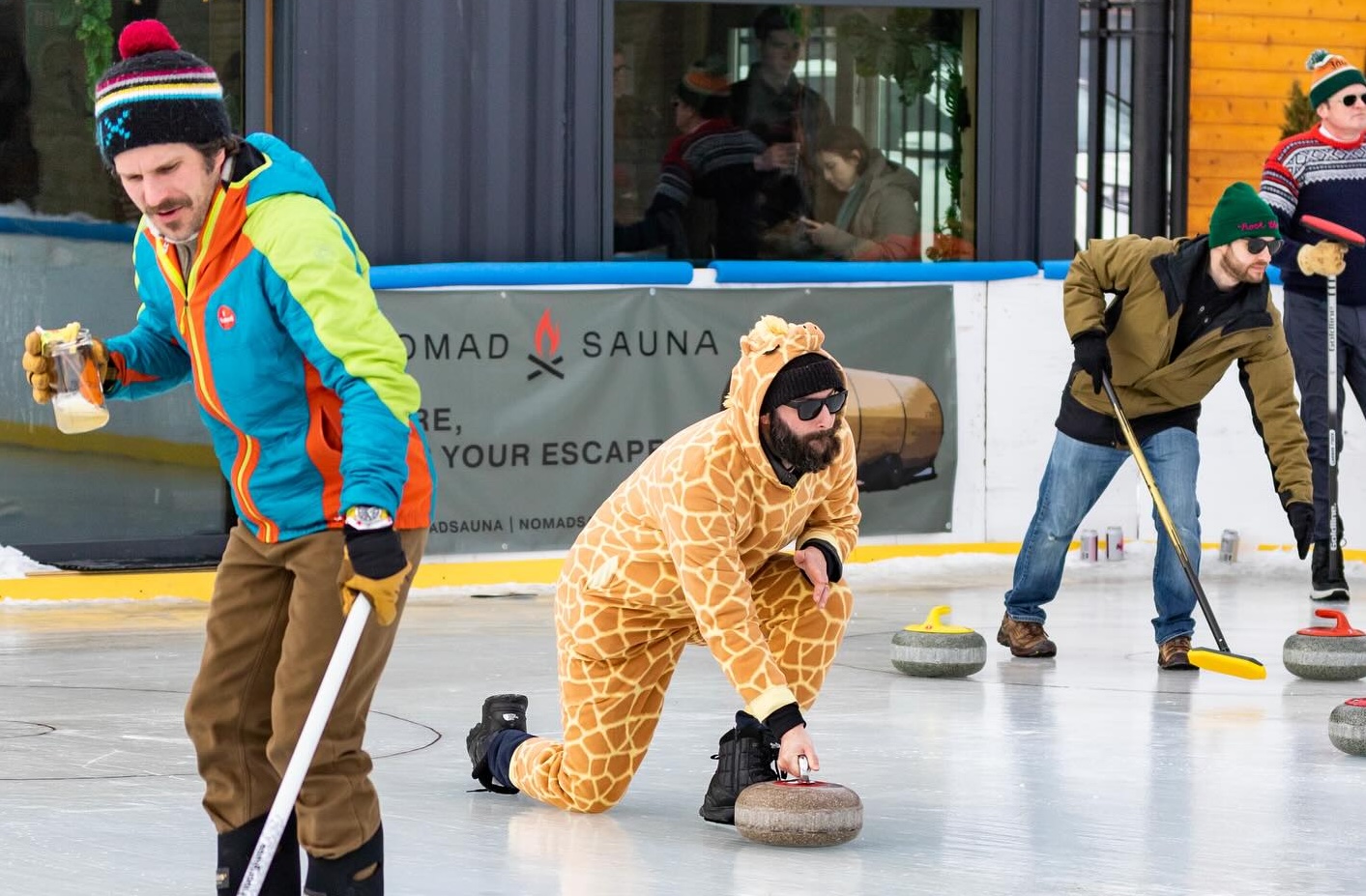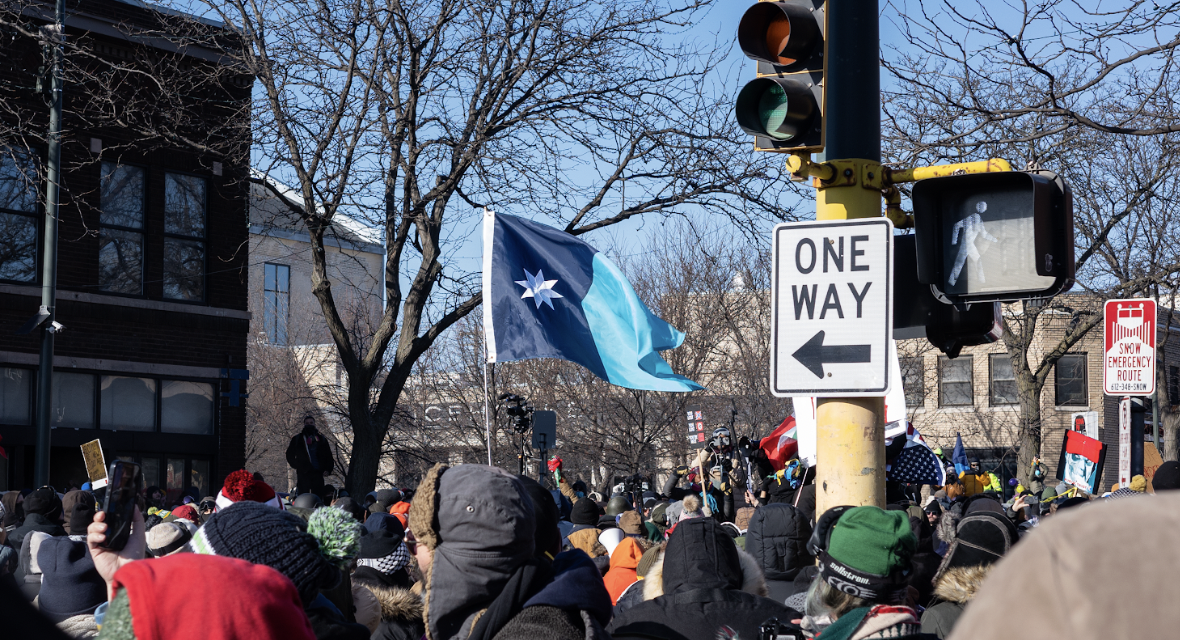Our readership's hardcore Bob Dylan-heads may well be aware of Jokermen. The podcast was created around 2020 to stave off pandemic "insanity," with hosts Ian Grant and Evan Laffer tunneling deep into the recesses of Dylan's vast discography to unearth overlooked gems and, to the extent it's even possible, better understand the inscrutable bard behind 'em.
"I didn't nearly have the knowledge or the appreciation for the man that I do today," Grant tells Racket. "It has grown exponentially to the point where it's now, ya know, more of a sickness than anything else."
If entry-level Dylan fandom means beginning with 1963's Bob Dylan and tuning out by, say, 1975's (uniquely Minnesotan) Blood on the Tracks, Jokermen offers a postdoc podcast dissertation on those other 49 years of recordings—the Christian era, the pop-schlock era, the critical renaissance, the current elder-statesman standards revivalism. The pod doesn't take itself too seriously, however; Grant and Laffer are just as likely to crack wise as engage in heady Dylanology, creating a fun, accessible place to nerd-out about not just Dylan, but also Lou Reed, John Cale, and, honestly whatever music they deem worthy of deep-dives. A recent ep features non-local rocker Craig Finn talking about the late, great Silver Jews, for instance.
Everything's in-line with the thesis of the project: Better understanding your musical heroes, and in many ways all roads lead back to Bob.
"At the end of the day, the man is universally regarded as the poet laureate if the 20th century, the Great American Artist, whatever. If the man who was capable of 'Like a Rolling Stone,' 'Positively 4th Street,' 'Tangled Up In Blue'—if he's doing Down in the Groove in 1988, the deep, deep dark stuff of the '80s into the mid-'90s, it is still Bob Dylan music," Grant explains. "It's worth taking seriously. And wouldn't you know it? Our patience and persistence has been rewarded every step of the way with endless treats and bounties; there are throughlines that run from the earliest days to where he's at now."
As an excuse to plug Jokermen, we got Grant on the phone for a long conversation that began with a warning to the Bay Area podcaster: We're gonna bring it all back home with only hyper-local questions about Dylan, and reveal our own geographic insecurities in the process. (For insider insight into what Bob means to Minnesota, simply consult Jon Bream.)
Thankfully, Grant was more than game. Enjoy our talk about the mystical metals of Hibbing, Bob's carnival obsession, decoding that fateful '08 Northrop gig, and a whole lot more.
I'm gonna make you dig deep here, because I don't know that you've even thought about this at all. So tell me: How much have you thought about Bob's relationship to his home state?
You kinda can't help but do so, because it is a large part of the legend. It's the origin story of Bob Dylan. And also, as much as it is, it's also the thing he seems to run away from. It's what he discards, rejects, masks, and doesn't look back at—to quote a very frequently used phrase. There are stories of the early, early days—'61, '62—and people are asking where he comes from. He's telling them he was raised in New Mexico. This is all false advertising from the start. You have to wonder why he's doing that.
I don't know that I've ever come up with a satisfying answer as it relates to Minnesota specifically; I think it has more to do with who this guy is himself, rather than anything that might be good or bad about the Land of 10,000 Lakes up there. But it is the initial building block off of which he constructs the rest of his persona, in that it is something that was formative for him, dictating where he was and where he was going to go. And then, as soon as he has the opportunity to throw it all in the trash and walk away, that's definitely what he does, setting the template for the rest of his life.
So I'll give you a glimpse into the psyche of our people here, and of course a lot of it has to do with a sense of flyover rejection. You know, spending a couple semesters at the University of Minnesota, performing at some coffee shops in Dinkytown, and then bolting as quickly as possible to a New York City hospital to meet his folk hero. And then completely reinventing himself, as you mentioned. It goes so deep. Like, there's even contention between Duluth and Hibbing—where he was born, where he was raised—over who can rightfully claim Bob. There have been high-profile fights over something that, ultimately, pedantic. So that's how baked in this sort of question is. So if I can put all of those hang-ups on you: How much of a claim do Minnesotans have to Bob Dylan, broadly speaking?
You can claim him as much as anyone else can claim him [laughs]. I think that part of Bob's whole thing is preventing anyone from being able to claim him, right? He's an Angeleno at the end of the day. I grew up out in the valley, inshore from the beach, and that's near Bob's enormous Malibu property that he mostly calls home.
One of our readers is his next-door neighbor, apparently.
Wow. When you say "next-door neighbor," you must mean the next parcel far across the road. That's wild though.
If you're going by where a man sets down, Malibu is as good a location as any. And yet it seems so out-of-character, atypical, and incorrect of our understanding of him. At the same time, you can't really think of the guy as a New York City product at this point. So much of his life involved running away from New York City, from all the hangers-on in that scene. Upstate New York, obviously, plays another important role in the man's artistic journey—where he kinda settled down and began to rear his family initially, doing records like Self Portrait and Basement Tapes. But even that's just a footnote at this point. So I think Minnesota is just one in a series of these different locations, points in space, points in time, that go into making up who the man really is.
At the end of the day, I don't think any one of them can rightfully claim him more than any of the others. You know, L.A. and New York have some other stuff going on, in terms of their cultural legacy. But when you're Hibbing or Duluth, you don't have quite as much to stand on, in terms of national legacy and reputation.
Have you made the pilgrimage to the boyhood homes in Duluth and Hibbing?
No, that is one thing that I need to do. We have this other Bob podcast [Never Ending Stories], with our friend Steven Hyden from the Twin Cities, and he's always ribbing us about not having paid the visit to the North Country, the place where it all began. From what I understand it's amazing. I know [the current owner of Dylan's Hibbing home] Bill Pagel has basically a living museum dedicated to him, and that there's all sorts of plaques and artifacts strewn about all throughout those places that I'd love to see. Unfortunately, it hasn't been on my way anywhere, so I haven't been able to justify the expense. Until now I guess; at this point, [the podcast] is something of a livelihood for me. So it's in the cards for the near future.
It's a lot to ask of a plaque, to be the main pull-factor for visiting the middle of nowhere. As a sort of trivia aside, the public high school in Hibbing is absolutely magnificent, like a Hogwartsian castle in the middle of the Iron Range. From what I understand, the mining companies in the early 20th century really took it upon themselves to be stewards of the community, and built this incredible structure for the benefit of the miners' children. And it has this—apparently haunted—magnificent theater which is, of course, where Bob first performed. Quite the stage for your debut.
There's a big book that came out a couple months ago, Mixing Up the Medicine, by some of the archivists at the Bob Dylan Center down in Tulsa. We did a podcast interview with them recently, and they include some pictures of the Hibbing High School auditorium in the book to kind of contextualize what you just said—where Bob cut his teeth as a performer. And it is extraordinary. It looks like the very theaters he's playing in up until today.
That's one thing that's very notable: His Never Ending Tour performances have always eschewed, ya know, the big cavernous arena-type venues in favor of older, more intimate, extremely ornate theater spaces that don't have as many seats. You can't make as much money as playing Madison Square Garden or Staples Center or whatever, but those are the environments he wants to perform in. Those moments in Hibbing might've imprinted on him, to some extent, as a young man, whatever he felt performing in that space as a kid. Maybe he's still chasing that all these years later. He seems to be recreating that experience, night in and night out, on these globe-spanning tours he's been on for the past 35 years.
To your theater point, there's been no shortage of explanation over why he chose to play Northrop Auditorium—a large theater at the University of Minnesota, his old school—on the eve of Barack Obama's historic election victory in '08. It all seems very conscious but, in classic Bob fashion, who knows what the fuck he meant by it?
Yes, we've talked about that with Steven. He was at that show, and it was one of his flashbulb moments as a music aficionado and a Bob fan. He has brought up that very same point. I think it is thematically resonate: where it was, when it was, what he might've been trying to say or signify... like you said, who the fuck knows? But you can't help but, like, read into the sheep's intestines with that sort of thing.
Right, right. And this is me sort of talking at you at this point, but in Chronicles and in a recent interview a few years back, the only things Bob really yielded about his childhood and the state of Minnesota in general... he didn't talk about the U of M, he didn't talk about being bad at folk music in Dinkytown. But he did talk about this sort of cosmic charge bubbling up from the scarred landscape of the ore mines and this, sort of, mystique of Indigenous powers emanating from the land. Just a very mystical reading of his homeland.
I know exactly what you're talking about. He was very focused on the metals, specifically. The metallic nature of the landscape, or something, and the magnetic waves and radio frequencies. It's all put across in coded, latter-day, obtuse Bob Dylan language. So who knows what he actually meant by any of it? But it is a fascinating idea to think about, this man that seems so indicative or representative of the restless, hungry spirit of the American people, and he's so deeply identified with New York City and Los Angeles. Yet he comes from this... wasteland would be too harsh of a word... but it is an unforgiving kind of country up there; it feels like another planet, right? It can't help but have done something to the man who would become Bob Dylan, even if he refutes it or refuses to acknowledge it.
If and when you get up to the Iron Range, it really is a trippy visual landscape. Most of northern Minnesotan is a heavily wooded, sort of winter wonderland. And then on the Range, there are these vicious scars all over these towns that depend on these vicious scars. Or at least used to, before falling taconite prices caused them to fall on semi-permanent hard times. So yeah, it's a trip to visit and I'm hoping for a Jokermen live record across the street from Dylan's Hibbing home one day.
At some point, one day! We want to get to the Tulsa Center, take a look at the archives first. It'll have to be a two-stage process.
Anything else about Bob's origins that you feel would be instructive to understanding the man, as much as anyone can understand him?
One thing I've always been cued in on is his fascination—bordering on obsession—with carnivals. They're evocative of a particular moment in time, early 20th century Americana—boxcars, hobos, bearded ladies, wolfmen, whatever. These rinky-dink carnivals travel across the country trying to make a buck… but, also, snake oil. I've always found it funny how often he comes back to that, there are tons and tons of allusions to carnivals and carnies in his songs and in interviews, like the one in No Direction Home. The Rolling Thunder Revue turns into one of his attempts at these carnivals, later on. Up until today, it remains a major factor of what all went into this weird, unknown stew from which he emerged as a kid. Not distinctly unique to Minnesota, but he certainly went to some in Minnesota.
Semi-tangent, but are you a Replacements fan?
I am a Replacements fan, yeah.
Did you read Bob Mehr's wonderful book, Trouble Boys, a couple years ago?
I've not but it's on my list. We want to try and get Bob on the pod at some point to talk about Minnesota music in general. Because Bob Dylan is part of that whole Minnesota music continuum—the 'Mats, Prince, Husker Du—yet he's not at all part of it, ya know?
That's what I wanted to hit on with Trouble Boys. In it, so much is made of the Replacements projecting this regional identity across the country—the podunk, townie rock band nobodies who just want to get fucked up. Just Upper Midwest to their bones. And then you have Bob, and he's the polar opposite, claiming no geographic identity whatsoever.
Exactly. For Bob, it probably initially began as a sense of shame. He was operating in these very hallowed cultural spaces, where it just would not have been cool to admit you're a chicken little kid from nowhere Minnesota, and you're trying to invent yourself down there at The Gaslight and Cafe Wha? Whereas someone like Westerberg or the Stinson brothers, they took pride in that outsider status. Maybe Bob didn't have that sort of confidence. But he evolved from that sense of shame into a sense of "great than," where he's so far beyond acknowledging his geographic founding as a major driver of his art... he's so far beyond it at that point, to even take some sort of retroactive pride in that.
Because he became Bob fuckin' Dylan!
